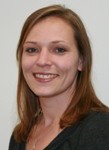 Our December forum this year focussed upon engaging with communities of practice and with collaborations external to the University from several FMS discipline areas. Student placements, in the context of value and depth of experience involved two speakers.
Our December forum this year focussed upon engaging with communities of practice and with collaborations external to the University from several FMS discipline areas. Student placements, in the context of value and depth of experience involved two speakers.
Vanessa Armstrong described how cross-institutional bioscience research collaboration which gave early qualitative insights into student perceptions of placements; their learning and skills gains and self-efficacy. ERDP funding had enabled student involvement with the project.
Carla Chivers described how Psychology students find placements, and the myriad of placement providers that the school engages with. The student voice was refreshing, as was hearing how students reflected upon the graduate skills demonstrated. The student reflection and ownership of the active learning process was apparent from both presentations.
Bana Abdulmohsen gave a fascinating talk about embedding new teaching practices for dental anatomy. Evaluation of the pilot phase for the new pedagogic approach, by students and staff, indicated the engaged learning method was both positive and rewarding, but needed more time to consolidate the learning.
Luisa Wakeling described DERG (Dental Education Research Group) to address the gap in the social sciences training and publication, and the creation of BARDES (British Alliance for Research in Dental Education and Scholarship). Future aims include a proposal for a toolkit for beginning dental education research.
Lastly Steve Jones presented the new MBBS Longitudinal Integrated Clerkship (LIC), embedding students for longer into the clinical team to enable in-depth participation as opposed to blocks of case involvement. It was evident that the new approach addressed the GMC emphasis upon employability, and encouraged compassion and reflection in practice. The forum stimulated interesting discussions including ethical approval, getting published, measuring achievement and reflection upon pedagogy, successfully concluded with festive treats and networking.
Carys Watts, School of Biomedical Sciences
